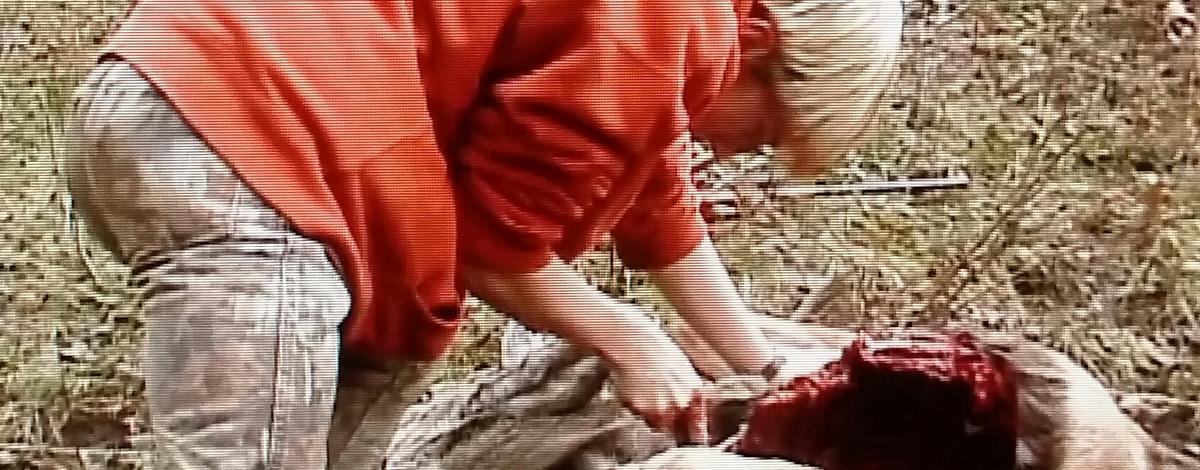Early season big game hunts have started and hunters are already in the field to take advantage of what looks to be another great season.
But with daytime temperatures reaching the mid-90’s and the high risk for wildfires, Idaho Fish and Game encourages early season hunters to plan ahead and keep these weather-related precautions in mind.
Meat Care
A critical part of any hunt should be a plan for taking care of meat so it doesn’t spoil. The key to preserving meat in hot weather is to begin the cooling process as quick as possible. Animals should be immediately skinned, reduced to quarters in most cases, and quickly transported to cold storage.
“Having a plan in place to get meat out of the heat and cooled is the first thing to consider for early season hunts,” said Matt O’Connell, Fish and Game assistant enforcement chief. “Hunters need to remember it takes more preparation, and there’s less room for error in handling game meat, than during fall hunts when the weather is cooler.”
Hunters have an ethical and legal obligation to properly care for the game meat they harvest. Allowing a game animal to spoil will not only result in losing all the meat, but hunters can get in trouble for allowing it to happen.
Tips for hunting during warm weather include:
- Remove the hide of a harvested animal as quickly as possible so it will begin to cool down. A deer or antelope can hang and cool as a whole carcass in air 40 degrees or cooler, but elk and moose should always be quartered. Even with the hide off, the larger body mass takes a long time to cool and meat can spoil in a matter of hours if the heat cannot escape.
- When an animal is harvested in the evening, it still needs to be found, cleaned and processed as quickly as possible. Keep in mind that the ground is a great insulator. The elevated part of the carcass might cool slightly, but the bottom-side will retain heat and sometimes spoil if left overnight.
- If you’re making a relatively short trip from the field to home or field to camp, you can fill the body cavity of an unskinned antelope or deer with ice bags to help cool it. But beware, body heat can remain in the thickest parts of the animal, such as the hindquarters, and stuffing with ice is only a temporary measure. You should not rely on ice in the body cavity to cool larger animals like elk and moose.
- If it’s too warm to hang your animal, skin and quarter it and put the meat on ice. A large cooler will hold most or all of a deer that’s been quartered, or an elk that has been cut into smaller pieces. Remember to leave evidence of sex and species, as per rules found on page 100 of the big game rules booklet, or online at http://idfg.idaho.gov.
- Know where the nearest meat processing facilities are located and know their hours of operation. Do a little homework before your hunt so you will know where and when you can take an animal. Remember space may be limited in those facilities, so it never hurts to make a phone call before you go hunting.
- Bring an extra cooler and pack tightly with extra blocks of ice. Block ice stored in a quality cooler that’s left closed will last for days and be available when you need it in the field. Block ice last longer than crushed, and water should be drained from the cooler to maintain the ice longer.
- In temperatures below 40 degrees, flies are rarely a problem, but in higher temperatures, flies are your enemy. Game bags are essential to keep meat free of flies and clean as well. In warm weather, always bag skinned meat immediately. It is far easier to keep meat clean than it is to remove fly eggs, hair, dirt, grass, and pine needles later.
- There are conflicting views about washing down a big game animal with water after it is skinned. Most professional meat processors agree that using clean cold water to remove animal hair and dirt is a good practice as long as the carcass air dries quickly so that the water does not encourage bacterial growth. A cold water spray can also hasten the cooling process.
Wildfire Danger
With the threat of wildfire danger currently high-to-extreme in much of the state, hunters must know and abide by fire and land-use restrictions that may be in effect in the areas where they plan to hunt. Hunters are encouraged to visit http://www.idahofireinfo.com for current information regarding fire restrictions or contact their local land management office.
Remember that parking vehicles on dry grass can ignite fires. Chainsaws, generators and other machines with gas engines can do the same. Use them wisely and within the rules of fire restrictions.
It’s a good idea to outfit your vehicle with a shovel, pick, axe, a large bucket and a supply of water in case of fire emergencies. Cell phones, where service is available, are handy to report sightings of smoke, or to contact emergency service personnel.

